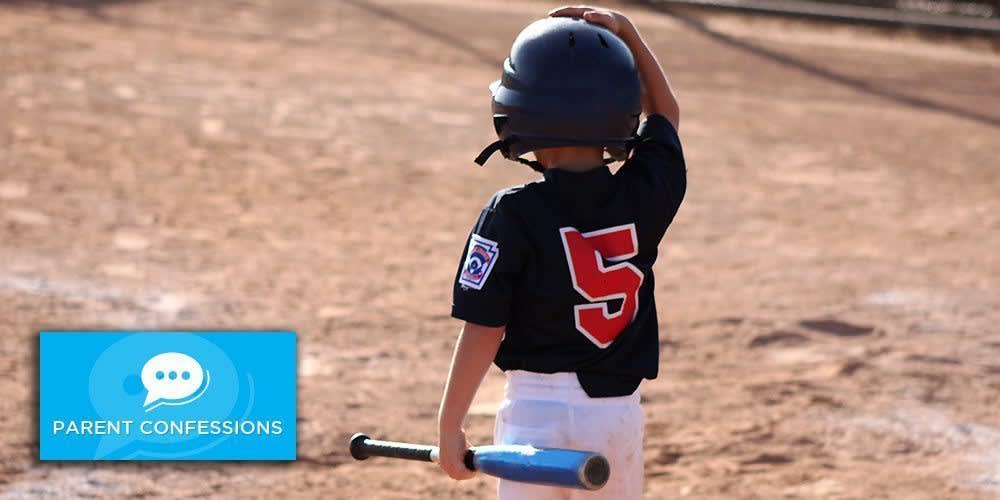
I was well aware that baseball is considered a sport of failure. A player gets just three hits in 10 at-bats, and he is successful. During my son’s third year of Little League®, and second of Coach Pitch, he struck out time and time again, and hit for an average of .125. I know this because I kept game stats from the bleachers. His previous year was even worse. Yes, I kept game stats then, too.
Every time he came to the plate, I tightened up, and got a pit in my stomach. I’d mutter to myself: Please, Aaron, just get a hit. After he’d strike out or hit a little dribbler to the kid playing near the mound, I would just shake my head, and yell: Come on, Aaron! My wife would say in much calmer voice: Don’t worry about it, kiddo. Keep doing your best.
His best just wasn’t good enough, but the only person who seemed to feel that way was me. After every out, he’d high-five the next kid up to bat on his way to the dugout, parents would yell their support, and the coaches welcomed him with encouraging words. He’d smile, take his helmet off, and then cheer on his teammates. I never paid attention to any of that, all I saw was his failure at the plate.
After his last coach pitch season, I told my wife that I wanted to pull him from Little League. She didn’t agree, and said he should be with his friends. I told her he’d most likely make a Major division team the following year and the kids playing there are bigger, stronger, and more talented. Because his fielding was okay, he wasn’t a safety risk, but I worried he’d start to feel pressured because of how poor he was at the plate. I said to my wife: Look how he struggled in coach pitch. Imagine what it would be like at a higher level. I don’t want him to stress out. I guess in my head, what I really was thinking was, I can’t see him fail any more.
I kept emphasizing to my wife that I was doing this for him. She wasn’t buying it. Looking back, she was right not to. After telling her I’d work with Aaron in the back yard, something I should have done more often, she finally gave in. I talked to Aaron about the plan. I promised him I’d try to help him, maybe get him some private instruction, and that if he improved, he could give Little League another shot the following year. He wasn’t happy.
Much to my son and wife’s chagrin, I kept my promise that spring and summer, and we skipped Little League. I bought Aaron a new glove. I tried to get him outside to work on his game, but he fell into a routine of just playing video games, watching YouTube videos on his iPad, and riding his bike – many times to the Little League field to watch games. I went to the field a couple times, too. I watched him hang out with his old teammates after their games. I also watched him yell encouragement to a friend who had just struck out…he even gave him a high-five over the fence on the way into the dugout.
That’s when I realized, for Aaron and his friends, it didn’t matter if they struck out or hit a homerun gathered, they were content to have fun and learn the valuable life lesson of dealing with failure – something I always struggled with. Looking back, no matter how many times he struck out, he’d always stay positive, and looked forward to his next time up to bat. His coaches, teammates, and his mother helped give him that outlook and perspective. His father did not.
Later that winter, I threw away my stat book, and circled the date on the calendar for the following year’s Little League registration day, and we hit the backyard with a new goal in mind: Have a fun Little League season.